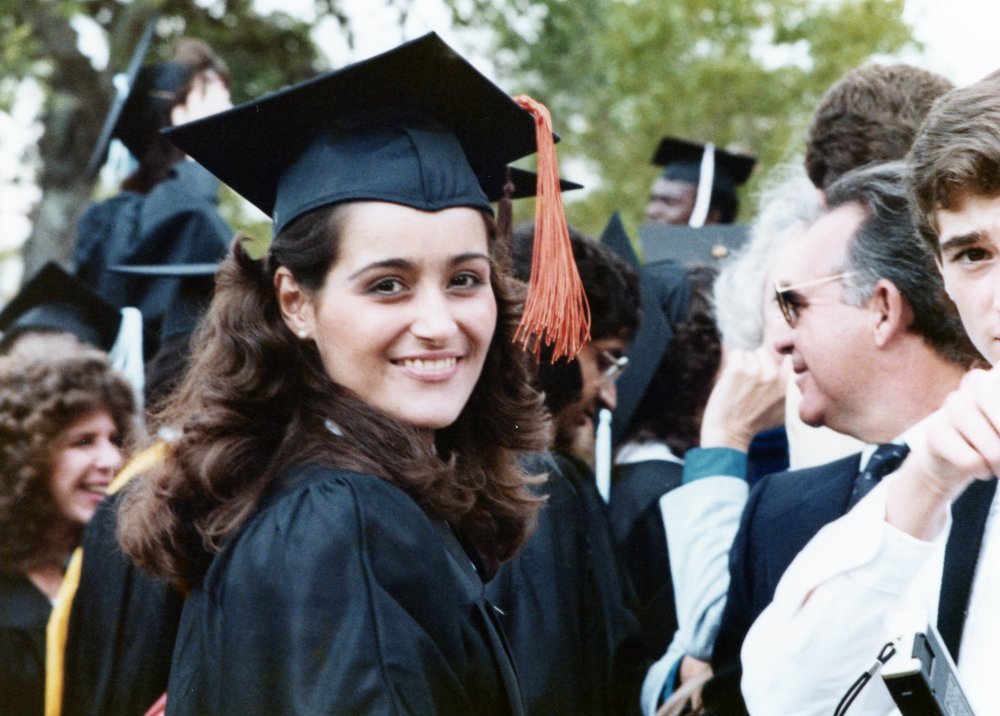‘If someone else can do it, why not you?’
I was born in Cuba, where my father was a political prisoner. When he was released, he and my mom decided that they wanted a better life for us. We came to the United States and ended up in Union City, N.J.
My parents worked very hard all the time. Somehow—and I’m very proud of them for this—they were able to save enough money to open their own grocery store. While other girls might have been heading off to Girl Scout meetings, I came home, had a snack and immediately went to work as a cashier in the grocery store every day after school. I joke with people that it was those early days at the cashier that made me really good with math because I had to make change on the spot. I learned at a very young age the value of being part of a community, the value of customer service, hard work and perseverance.
After I graduated from the University of Miami with a degree in engineering, I went to work for a local energy company. There, I had the good fortune of working for this person who ended up being a lifelong mentor of mine. He asked me one day, “Geisha, what are your long-term career aspirations?” And I said, “Oh, I don’t know. Maybe I’d like to be a manager or a supervisor someday.” He said, “No. I mean long-term.”
Well, I was thinking long-term. At that time, women like me didn’t run corporations. Latinas didn’t run corporations. Immigrants didn’t run corporations. But he looked at me and said, “Geisha, somebody has to run this company some day. Why not you?”
I couldn’t believe that he had actually said that. But I remember going through the organizational chart of the company. I looked at their backgrounds, their degrees, their experiences. I noticed that a lot of them had engineering degrees. Well, I had an engineering degree. I thought to myself, Then why not me?
The industry is certainly very male-dominated. But I was comfortable in a male-dominated environment. I studied engineering back in the ’80s, when there weren’t that many women entering the STEM fields. I know that there were times when people felt that maybe I didn’t belong there. And they might say something to make me feel uncomfortable. But I didn’t let them bully me. I just took it in and decided to respond very professionally and respectfully. I just thought, I’m going to do what’s right, I’m going to serve my customers, I’m going to work harder, and I’m going to overcome any adversity. I think I developed a certain level of confidence that I could do anything.
When I found out that the board had selected me to become CEO, it was such a “wow” moment. One of the very first people I called was that first mentor who told me I could do it.
I’m the first person in my family to go to college. I’m the first person in my family to be in any sort of position in corporate America. I’m the first in a lot of ways. I’m an immigrant who came to this country without being able to speak English and somehow—only in America, right?—I became the CEO of a Fortune 200 company.
You always hear people talking about what it means to be the first. But I think it’s important that we focus on making sure there are others. While I may be the first, I certainly don’t want to be the last. I would encourage young women to go for the tough jobs. The confidence you’re going to develop as a result of doing a good job in those difficult positions is the confidence that you’ll take with you to the next job and the one after that. It’s like a muscle you develop where you start believing in yourself and your ability to do just about anything.
If someone else can do it, why not you?
Source: TIME Firsts
Image courtesy of Geisha Williams
Women of Green is TURNING UP THE VOLUME of the feminine voice on the planet in order to create the world we know is possible.
